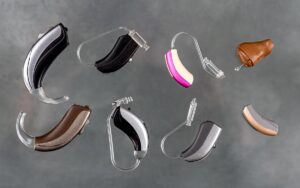Anxiety comes in two varieties. When you are dealing with an emergency situation, that feeling that you get is called common anxiety. Some individuals experience anxiety even when there aren’t any distinct situations or concerns to link it to. They feel anxious regularly, regardless of what you happen to be doing or thinking about. It’s more of a generalized sensation that seems to pervade the day. This type of anxiety is normally more of a mental health problem than a neurological response.
Both kinds of anxiety can be very damaging to the physical body. Long periods of persistent anxiety can be particularly negative. When it feels anxiety, your body releases a myriad of chemicals that heighten your alert status. It’s good in the short term, but damaging over a long period of time. Specific physical symptoms will begin to appear if anxiety can’t be treated and persists for longer periods of time.
Bodily Symptoms of Anxiety
Symptoms of anxiety frequently include:
- Bodily pain
- Loss of interest and depression
- A racing heart or difficulty breathing often associated with panic attacks
- Feeling agitated or irritated
- Fatigue
- Queasiness
- A feeling that something dreadful is about to occur
But sometimes, anxiety is experienced in surprising ways. In fact, there are some fairly interesting ways that anxiety might actually end up impacting things as apparently vague as your hearing. As an example, anxiety has been associated with:
- High Blood Pressure: And some of the effects of anxiety are not at all surprising. In this case, we’re talking about elevated blood pressure. Known scientifically as hypertension, high blood pressure can have various negative secondary effects on you physically. It is, to use a colloquialism, bad news. Dizziness, hearing loss and tinnitus can also be brought about by high blood pressure.
- Dizziness: Dizziness, which can also be related to the ears, is commonly a symptom of prolonged anxiety. After all, the ears are typically in control of your sense of balance (there are these three tubes inside of your inner ears which are controlling the sense of balance).
- Tinnitus: Did you realize that stress not only worsens tinnitus but that it can cause the development of that ringing. This is known as tinnitus (which, itself can have numerous other causes too). In certain situations, the ears can feel clogged or blocked (it’s staggering what anxiety can do).
Hearing Loss And Anxiety
Because this is a hearing website, we typically tend to concentrate on, well, the ears. And your how well to hear. With that in mind, you’ll forgive us if we spend a little bit of time talking about how anxiety and hearing loss can influence one another in some slightly disturbing ways.
The isolation is the primary concern. People often withdraw from social activities when they suffer from hearing loss, tinnitus or balance issues. Perhaps you’ve experienced this with someone you know. Perhaps one of your parents got tired of asking you to repeat yourself, or didn’t want to be embarrassed by not understanding and so they stopped talking so much. The same is true for balance problems. It might impact your ability to walk or drive, which can be embarrassing to admit to friends and family.
Social isolation is also associated with anxiety and depression in other ways. When you don’t feel yourself, you won’t want to be around other people. Unfortunately, this can be something of a loop where one feeds the other. The negative impact of isolation can occur quickly and will trigger numerous other problems and can even result in mental decline. It can be even more difficult to overcome the effects of isolation if you’re dealing with hearing loss and anxiety.
Figuring Out How to Properly Treat Your Hearing Loss Issues
Hearing Loss, Tinnitus, anxiety and isolation can all feed on each other. That’s why finding the best treatment is so important.
If tinnitus and hearing loss are symptoms you’re struggling with, getting correct treatment for them can also help with your other symptoms. Connecting with other people has been shown to help reduce both depression and anxiety. Prolonged anxiety is more severe when there is an overwhelming sense of solitude and managing the symptoms can help with that. So that you can figure out what treatments will be most effective for your situation, consult your doctor and your hearing specialist. Hearing aids could be the best solution as part of your treatment depending on the results of your hearing exam. The best treatment for anxiety might include therapy or medication. Tinnitus has also been shown to be successfully treated by cognitive-behavioral therapy.
Here’s to Your Health
We recognize that your mental and physical health can be seriously impacted by anxiety.
We also realize that hearing loss can result in isolation and mental decline. Together with anxiety, that’s a recipe for, well, a difficult time. Luckily, we have treatments for both conditions, and obtaining that treatment can make a huge, positive effect. The health impacts of anxiety don’t have to be permanent. The effect of anxiety on your body does not need to last. The key is getting treatment as soon as possible.
[blogcta]





